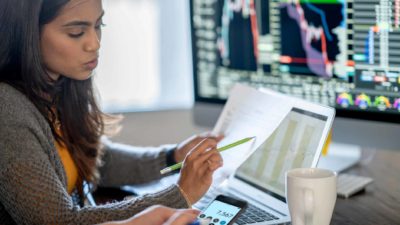As both US and Australian shares have climbed into the stratosphere since the March COVID-19 crash, a fierce debate has continued.
Are stocks overvalued?
This question is asked most of growth shares. The successful ones now have market capitalisations that are incredible multiples of their actual financial numbers.
For example, Tesla Inc (NASDAQ: TSLA) is now trading at a mind-blowing 1,377 price-to-earnings (P/E) ratio. The S&P 500 Index (SP: .INX) generally has a ratio of 42.08.
If this doesn't mean much to you, consider this. Tesla is now worth as much as the 8 biggest petrol-car producers in the world.
In Australia, Afterpay Ltd (ASX: APT) shareholders have been laughing this year but the company doesn't even have a P/E ratio — because its earnings are negative.
It's now worth more than Coles Group Ltd (ASX: COL). Are we seriously believing people are using buy now, pay later more than buying groceries?
Why are investors willing to plough so much money into companies with such inflated valuations?
Isn't it risky? Won't the bubble burst when everyone realises they've made a big mistake?
Why markets aren't as risky as P/E ratios suggest
Monash Investors principal Simon Shields has a very simple explanation as to why it's not as risky as it seems.
"I have yet to see anyone consider risk when comparing the high prices of today with the lower prices of yester-year," he said on Livewire.
"Investing in stocks was riskier 30 years ago, much riskier 60 years ago, and riskier still 90+ years ago."
How has investing in shares become safer in modern times?
Shields attributes the shift to the many checks and balances that have been introduced over the decades.
"Over that time, the world has become a much safer place in which to buy stocks. Investors are better educated. Companies disclose more information and accounts are more reliable. Security regulators and legislators have closed loopholes and reduced the opportunity for fraud," he said.
"Calculators and then computers have improved analysis. Technology has allowed everyone from investors, to companies, to regulators to make better-informed decisions, and so be less likely to be surprised. Central banks and governments have become much more risk averse."
This may help explain why investors are willing to pay such high prices for companies they think have bright futures.
Growth shares are not as cyclical these days
Shields also pointed out that the very nature of growth stocks have changed in the past couple of decades.
"In the past, a lot of the growth achieved by growth companies was cyclical (as shown in the consumer discretionary, media, building materials, or transport sectors)," he said.
"When the economy slowed or went into a recession, companies in these cyclical sectors saw earnings forecasts pulled back much more than those for the less cyclically exposed value stocks."
But since the internet boom in the 1990s, structural growth started to take precedence over cyclical growth.
"It used to be that 'tech' stocks were a distinct and small market sector. But new and better ways of doing things have spread rapidly across many industries with the penetration of smartphones, Web 2.0 and cloud computing," Shields said.
"Structural growth now is a greater proportion of the market's overall growth outlook, and it is at the expense of many mature low growth companies."
Examples of structural growth include consumers moving from physical to online retailers and shifting from owning items to pay-as-you-use (eg Uber Technologies Inc (NYSE: UBER)).
With the onset of the coronavirus pandemic, even travel has been structurally changed with video conferencing and work-from-home becoming the norm.
Structural growth is more stable, giving investors more confidence to throw money at these businesses.
"These structural trends are playing out regardless of the economy's cycle," said Shields.
"[This] means the growth companies' forecasts are less susceptible to cyclical disappointment, while at the same time they cause the value companies' forecasts to weaken."









